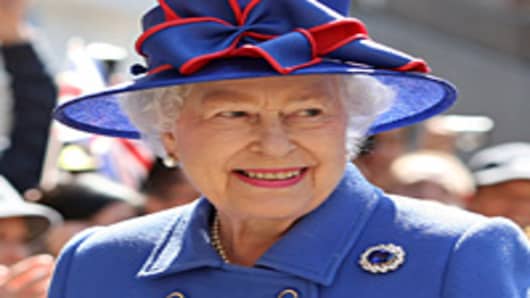A mood of austerity may be stalking Britain, but the champagne is still flowing at Buckingham Palace thanks to a government plan to put the queen on what might be seen as profit-related pay.
George Osborne, the chancellor, has proposed to do away with government grants to the royal household – first introduced in 1760 when George III agreed to transfer income from Crown lands to the government. They will be replaced with 15 percent share of the profit that the Crown Estate pays into national accounts.
This would put the royal family in line to earn about £34 million ($55 million) from the property portfolio when the first payment is made in April 2013, roughly the same amount it received from government last year.
But it could result in a bumper pay-out in a good year for the Crown Estate, which has a £6.6 billion property and land portfolio that includes parts of London’s West End and the entire UK seabed up to 12 nautical miles offshore.
Mr Osborne said that the new arrangement would mean increased flexibility and certainty for the royal household and link the queen’s income with the performance of the economy. He told MPs: “The current Civil List arrangements are no longer sustainable.
“They are inflexible, they are less than transparent and, critically, they rely on a reserve of public funds that has steadily been run down and is about to become depleted.”
The chancellor proposed protecting the royal family from the gyrations of the property market by making sure the amount could never fall below what was paid during the previous year.
The Labour party backed the reforms, but republicans reacted with anger. Graham Smith of the campaign group Republic, said: “The Crown Estate is not and never has been the personal property of the royals. The Windsors have no more right to its revenue than I do. To claim that it should fund their lavish lifestyle is deceitful and dishonest.”
The arrangement would mark a personal victory for Prince Charles, who first floated the idea 20 years ago. A government source said at the time the current plan was first considered: “The royal family must have been getting the champagne out once we conceded this.”
The changes would also provide extra financial security for Prince William, soon after his marriage to Catherine Middleton. Under the proposals, the income from the Duchy of Cornwall would go to the heir to the throne, whether that is a woman or grandchild of the monarch rather than just the eldest son, as currently happens.
If Prince Charles dies before the queen, therefore, Prince William will inherit his father’s revenue stream as well as the role of official heir to the throne.


